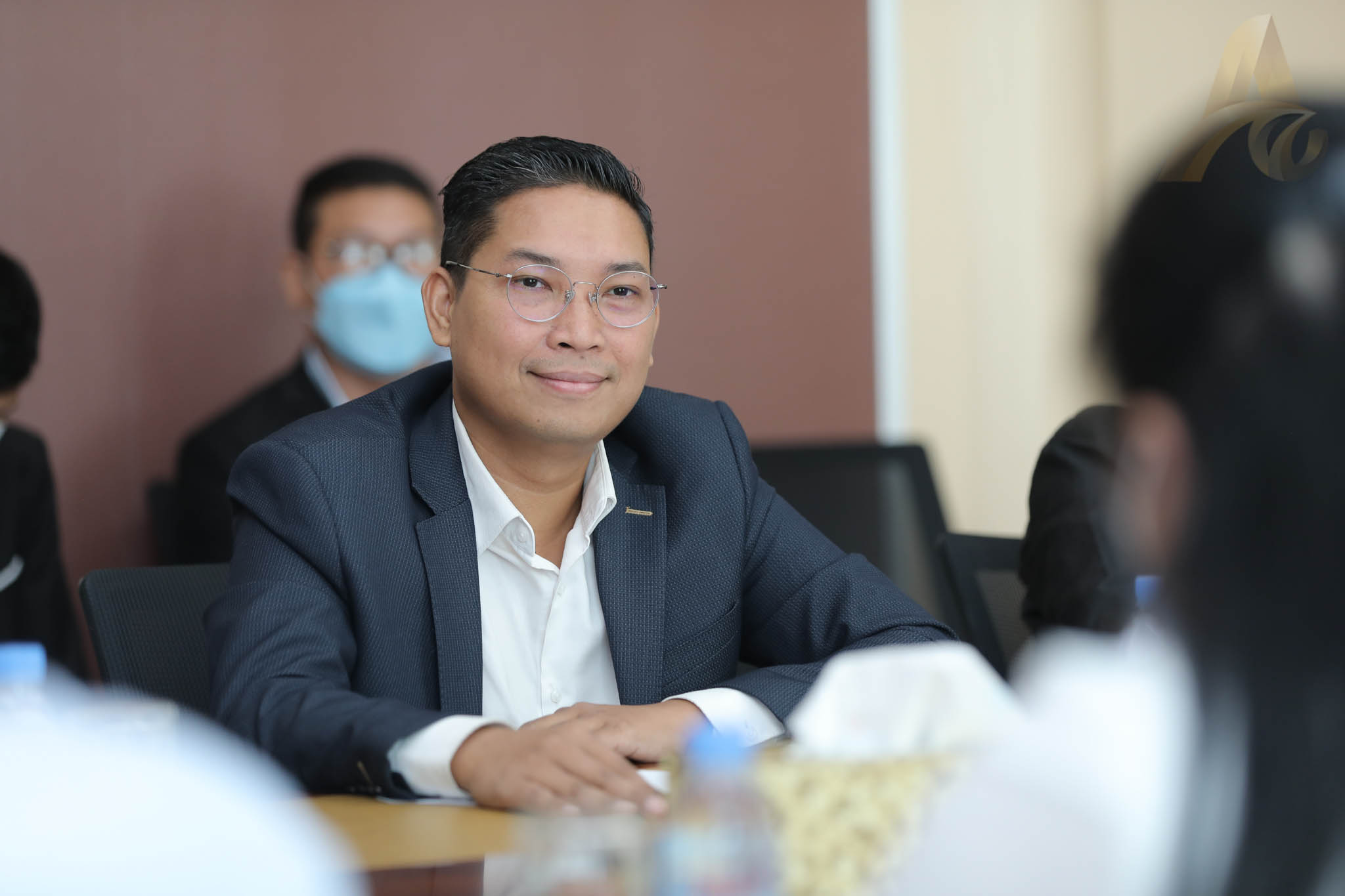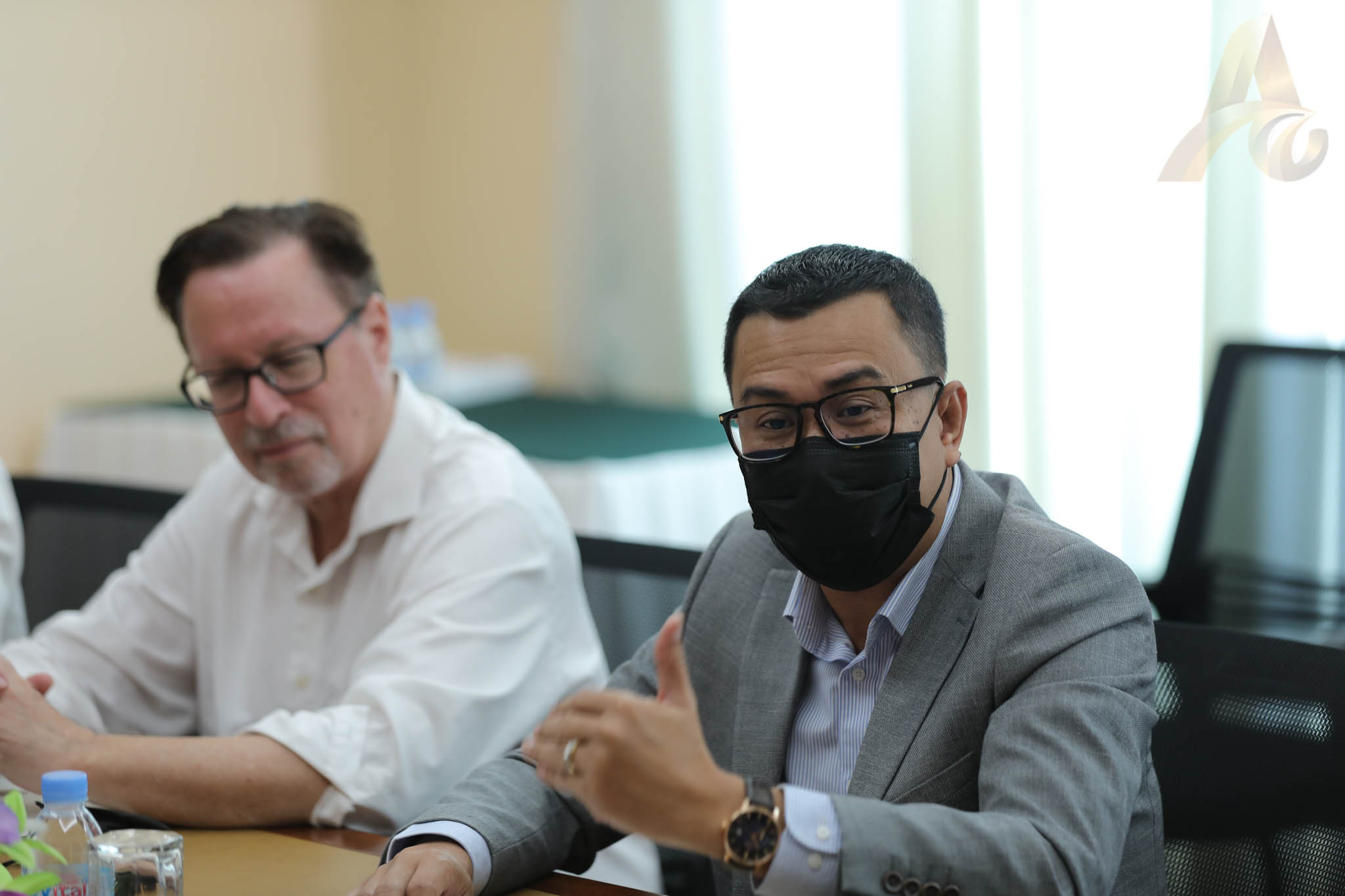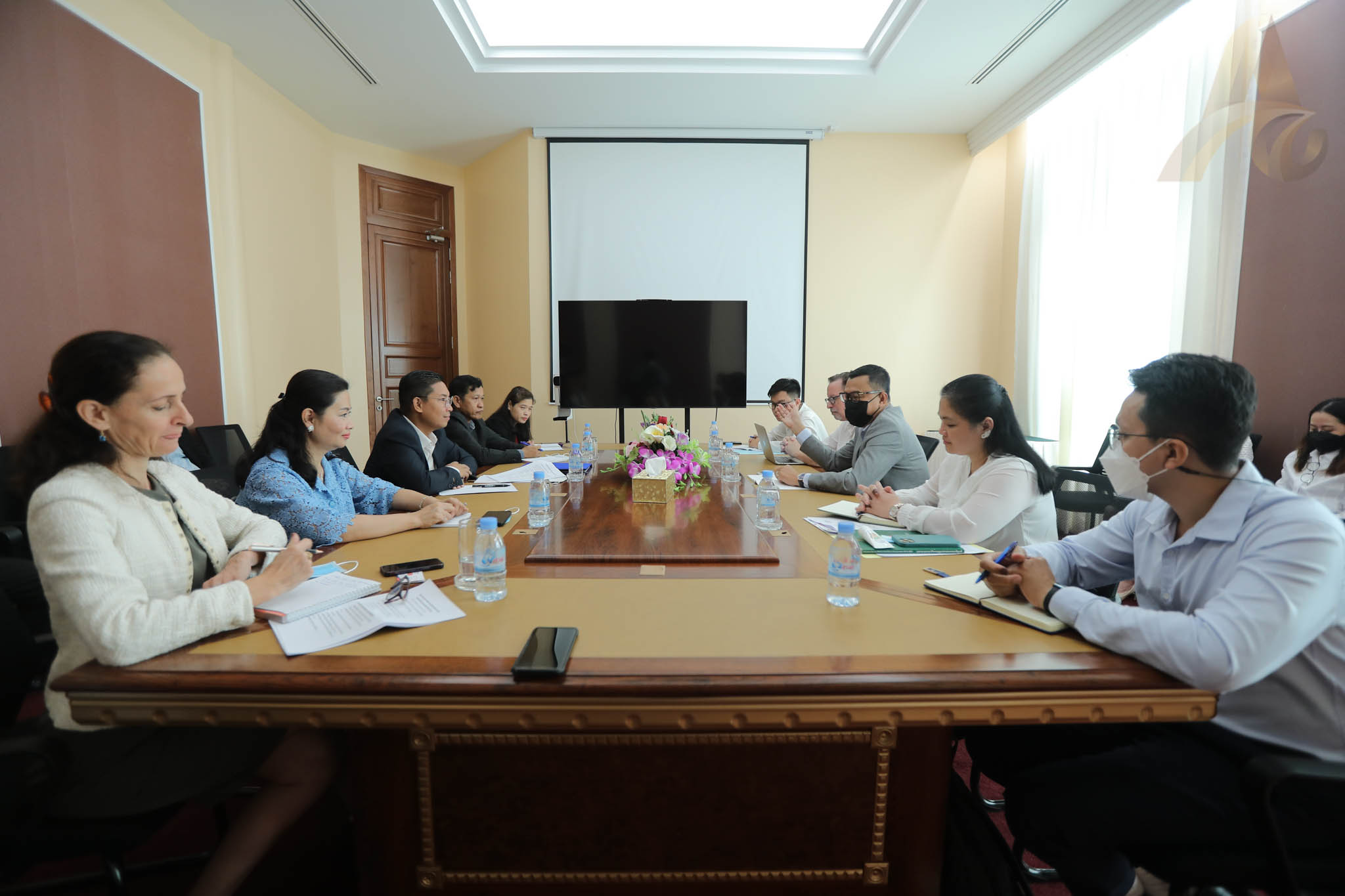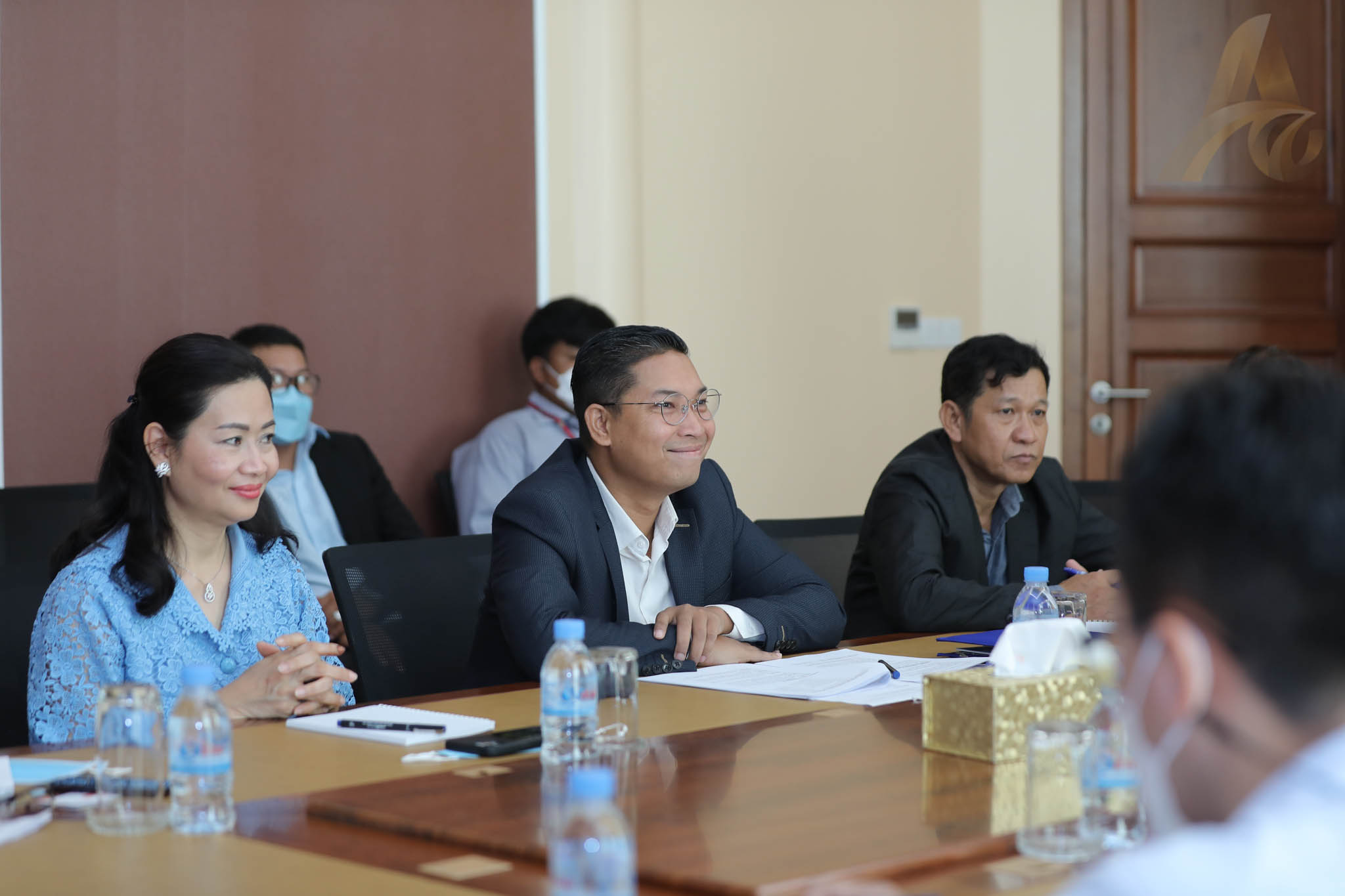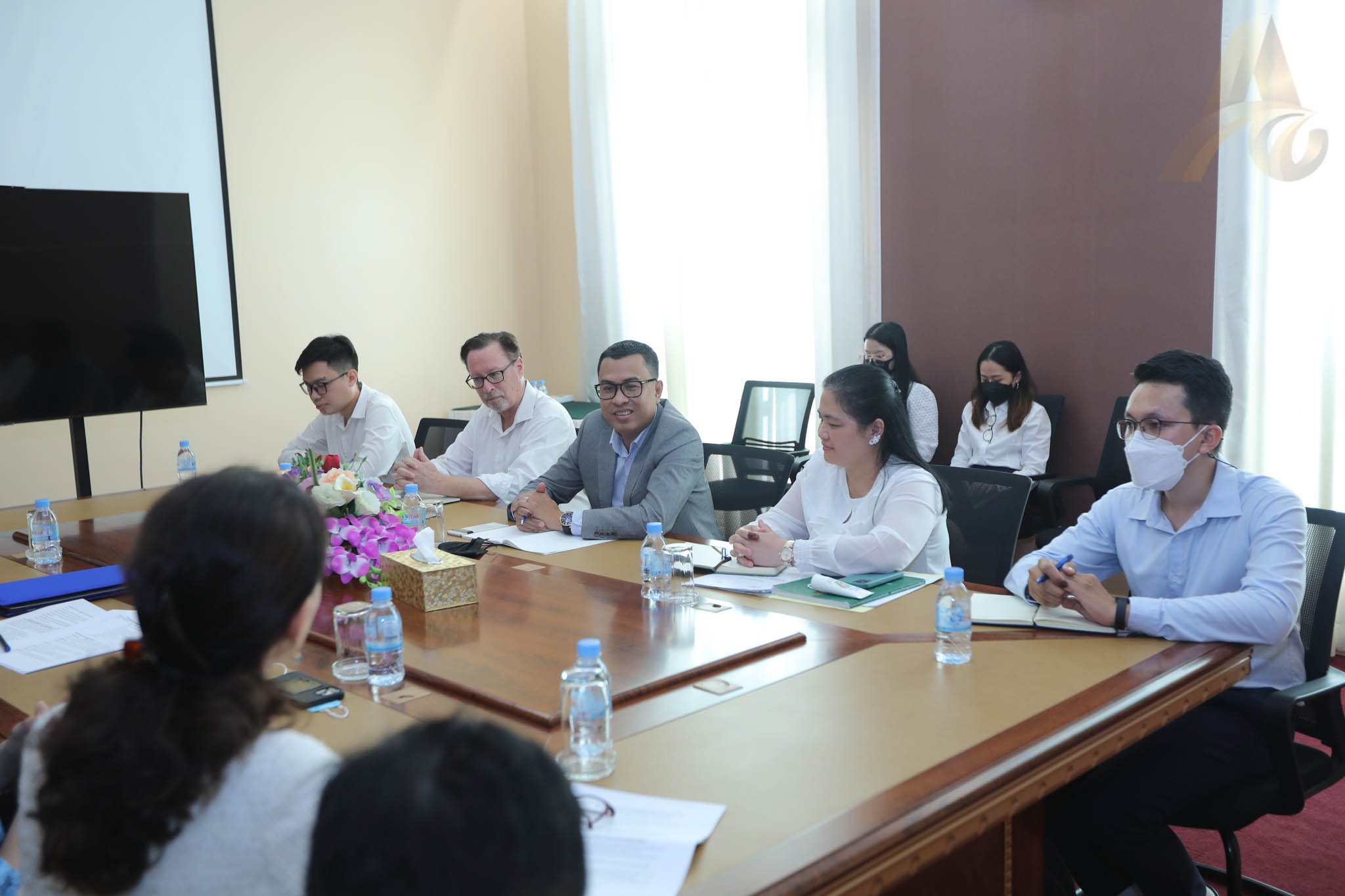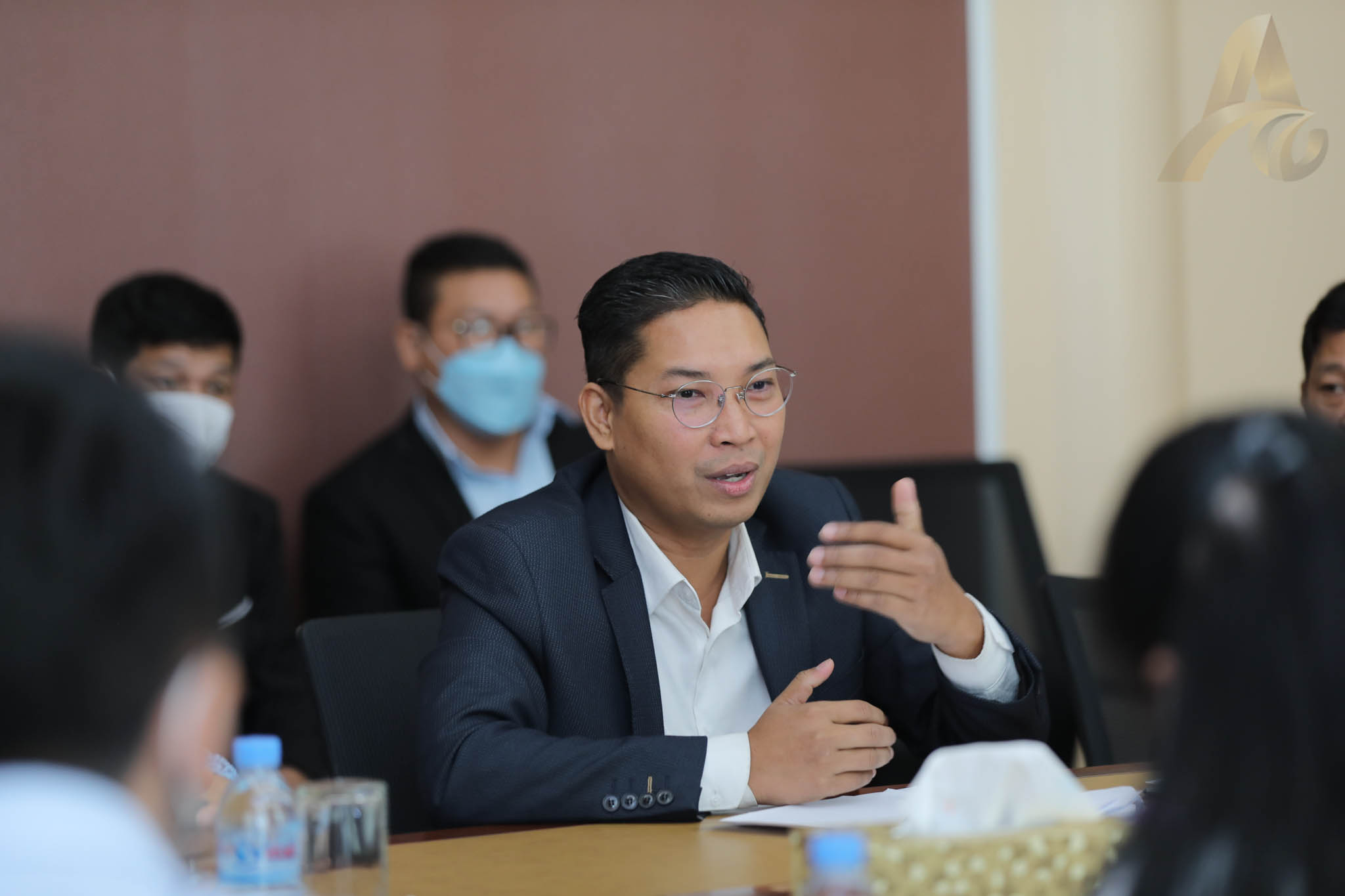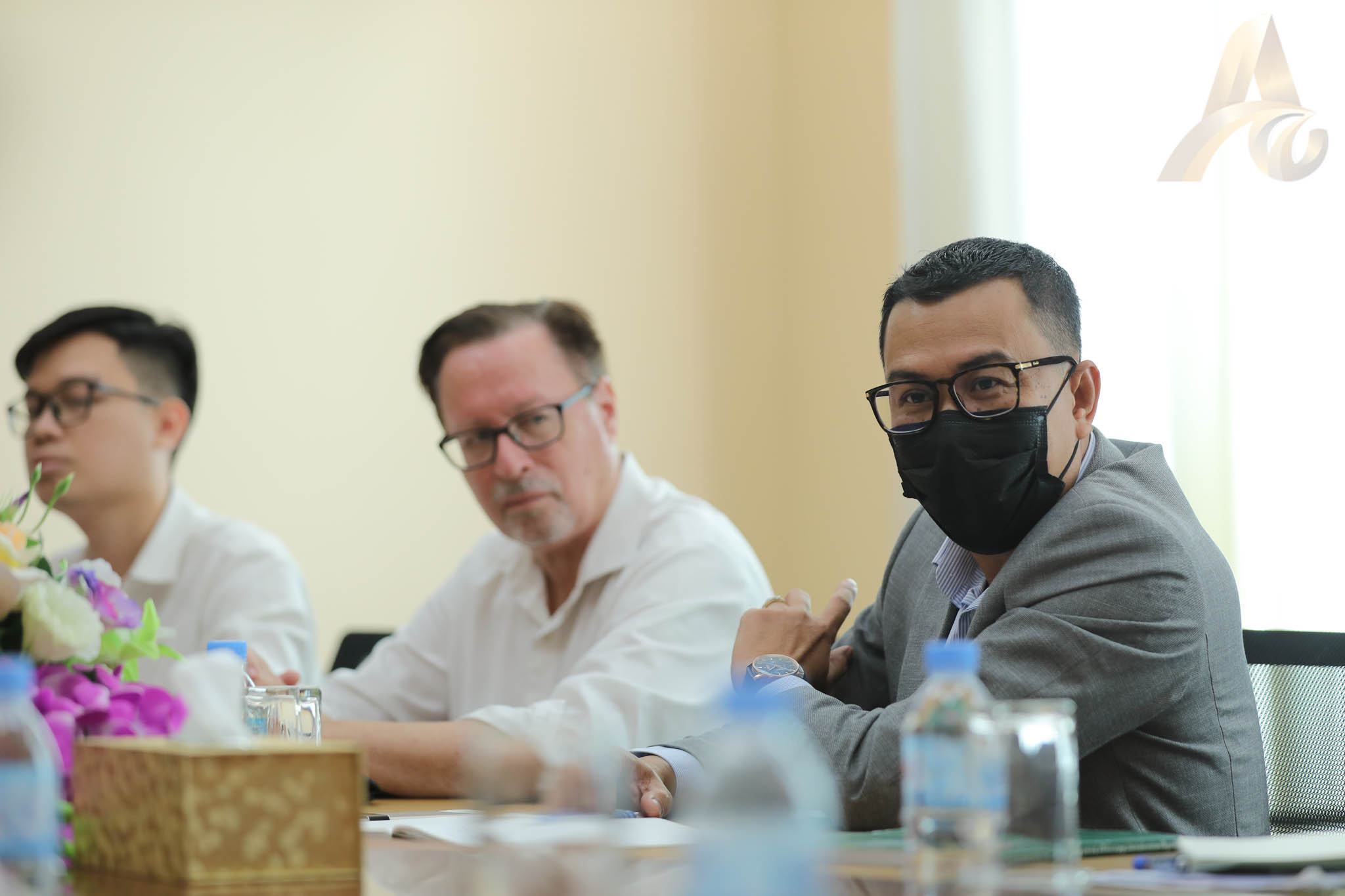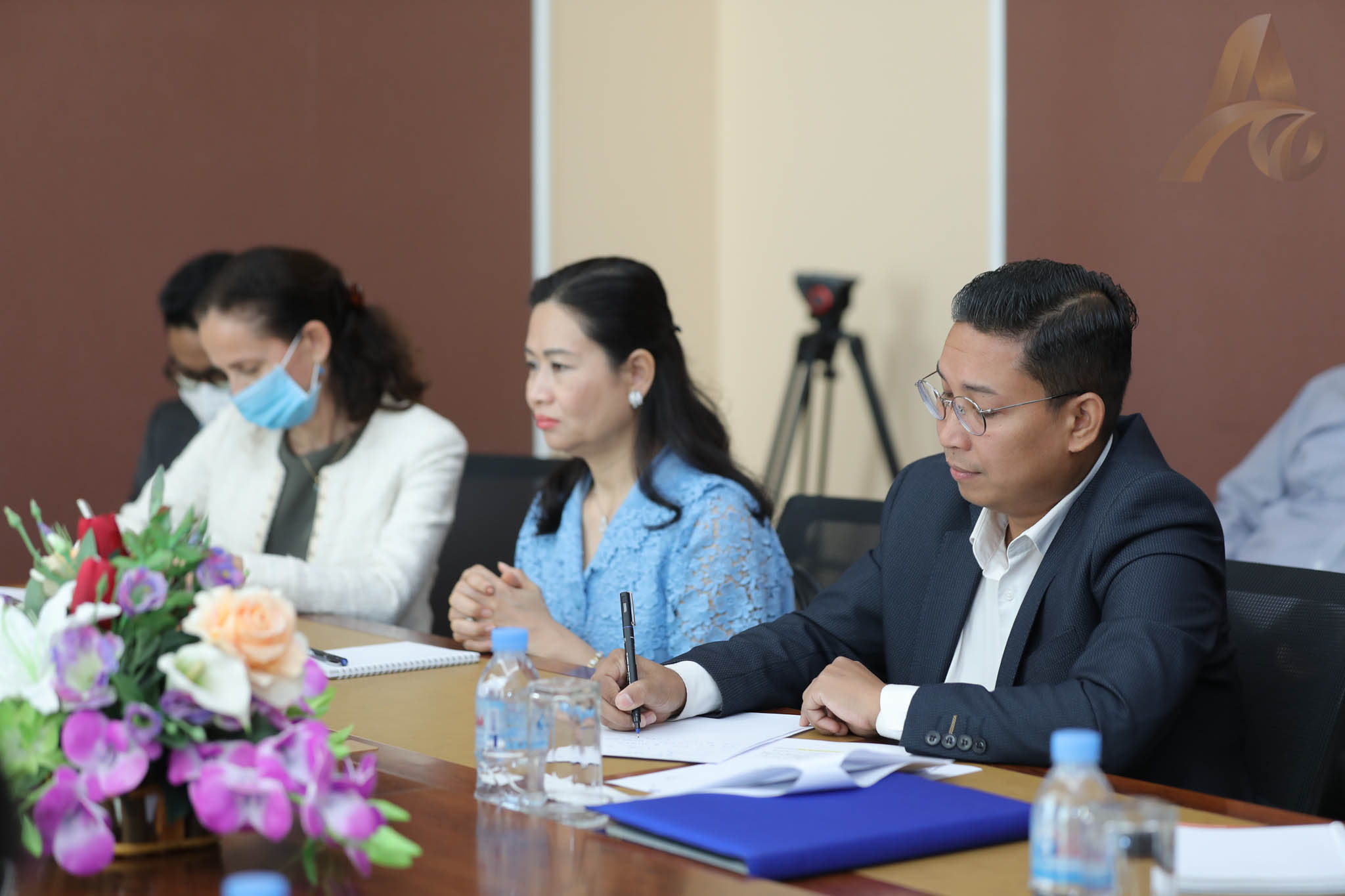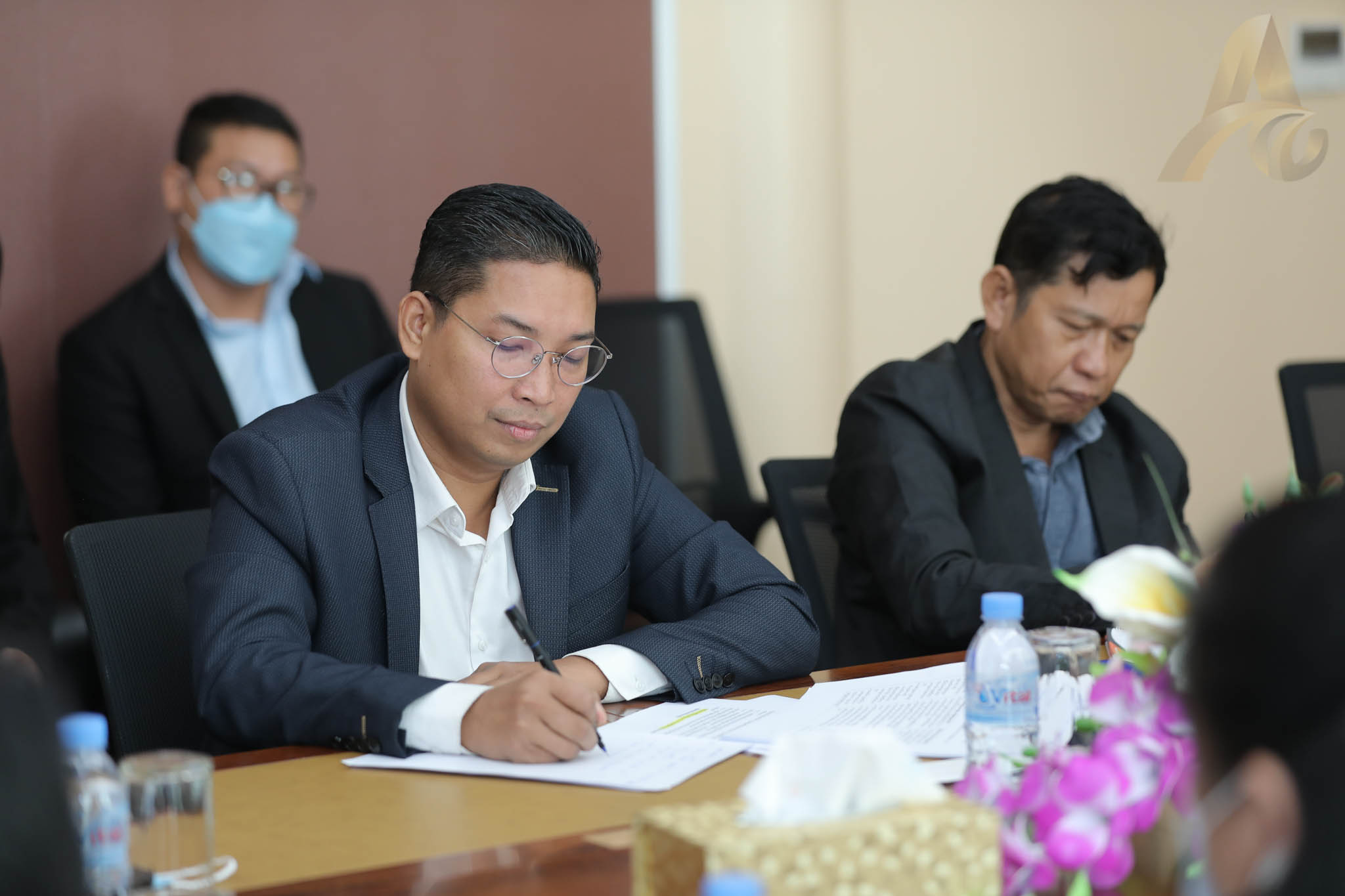PHNOM PENH: The Secretary-General of Disability Action Council, and the Secretary-General of the National Council for Social Protection, held a meeting on Tuesday morning, 7 June, with the aim of establishing joint cooperation between the two institutions to help persons with disabilities in Cambodia.
The meeting was held at the Ministry of Economy and Finance, chaired by the Secretary of State of the Ministry of Social Affairs and Secretary-General of the Disability Action Council, Em Chan Makara with Under Secretary of State of the Ministry of Economy and Secretary-General of the National Council for Social Protection, Chan Narith, along with the UN Development Program Officer and ACCESS Project Officer.
The two councils discussed a number of possible collaborations, such as the draft terms of reference (ToR), with input from the National Council for Social Protection, on the draft selection of international technical advisers, assisting in the development of guidelines signed by both councils, particularly Guidelines on Disability-inclusive Social Protection.
The two sides also discussed allowing the technical working groups of the two institutions to continue reviewing and working with development partners such as UNDP and ACCESS, and to also determine the composition of leaders and relevant officials to provide training on the guidelines of building disability-inclusive environments and social protection, and to identify mechanisms for implementing these guidelines.
Guidelines for Disability-Inclusive Social Protection are necessary for the Disability Action Council, Capital and Provincial Disability Action Council, National Social Protection Council (NSPC), Department of Disability Welfare, Department of Social Welfare, Ministry of Social Affairs, Disability Representative Organization, and relevant institutions, to be able to identify disability-inclusive social protection or social assistance that is being, or will be, established by the laws, policies and guidelines of the Royal Government of Cambodia.
This is to ensure that disability-inclusion is integrated into social protection policies, making policymakers better aware of inclusive practices in social protection policies, with principles that practitioners can also apply to ensure that persons with disabilities can actually benefit from the policies being implemented.
In addition, it will enable persons with disabilities to fully participate in the drafting of laws and regulations, and benefit from those policies and regulations put in place.
According to the CSES 2019-20 report, one in five households (about 18% of total households) in Cambodia spend more than 10% of their total expenditure on healthcare, while the other 5% spent more than 25% of their earnings on healthcare. Persons with disabilities are likely to pay more for healthcare, as nearly two-thirds of adults are less likely to be employed.
Most persons with disabilities and their families live in low-income and insecure conditions. Thirty-five percent of persons with disabilities have been living on less than 10,100 riel (US $2.5 dollars) a day in 2019, while 78% live on less than 18,000 riel (US $4.55 dollars).
The poverty rate among persons without disabilities is 17.5% and among persons with disabilities is 21.1%. Therefore, Guidelines for Disability-inclusive Social Protection are increasingly needed to help persons with disabilities be more protected and more involved in society to be able to address the poverty and health issues that they are facing.
